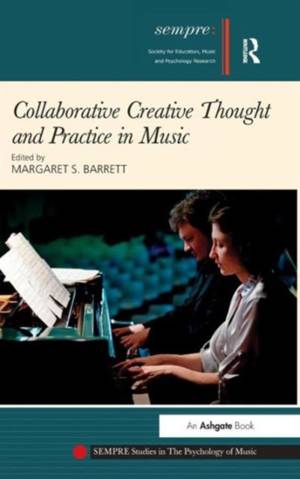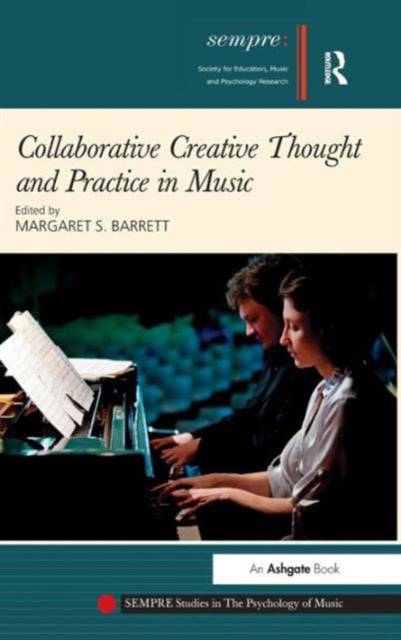
Door een staking bij bpost kan je online bestelling op dit moment iets langer onderweg zijn dan voorzien. Dringend iets nodig? Onze winkels ontvangen jou met open armen!
- Afhalen na 1 uur in een winkel met voorraad
- Gratis thuislevering in België vanaf € 30
- Ruim aanbod met 7 miljoen producten
Door een staking bij bpost kan je online bestelling op dit moment iets langer onderweg zijn dan voorzien. Dringend iets nodig? Onze winkels ontvangen jou met open armen!
- Afhalen na 1 uur in een winkel met voorraad
- Gratis thuislevering in België vanaf € 30
- Ruim aanbod met 7 miljoen producten
Zoeken
Collaborative Creative Thought and Practice in Music
€ 290,45
+ 580 punten
Omschrijving
The notion of the individual creator, a product in part of the Western romantic ideal, is now troubled by accounts and explanations of creativity as a social construct. While in collectivist cultures the assimilation (but not the denial) of individual authorship into the complexities of group production and benefit has been a feature, the notion of the lone individual creator has been persistent. Systems theories acknowledge the role of others, yet at heart these are still individual views of creativity - focusing on the creative individual drawing upon the work of others rather than recognizing the mutually constitutive elements of social interactions across time and space. Focusing on the domain of music, the approach taken in this book falls into three sections: investigations of the people, processes, products, and places of collaborative creativity in compositional thought and practice; explorations of the ways in which creative collaboration provides a means of crossing boundaries between disciplines such as music performance and musicology; and studies of the emergence of creative thought and practice in educational contexts including that of the composer and the classroom. The volume concludes with an extended chapter that reflects on the ways in which the studies reported advance understandings of creative thought and practice. The book provides new perspectives to our understandings of the role of collaborative thought and processes in creative work across the domain of music including: composition, musicology, performance, music education and music psychology.
Specificaties
Betrokkenen
- Uitgeverij:
Inhoud
- Aantal bladzijden:
- 328
- Taal:
- Engels
- Reeks:
Eigenschappen
- Productcode (EAN):
- 9781472415844
- Verschijningsdatum:
- 19/12/2014
- Uitvoering:
- Hardcover
- Formaat:
- Genaaid
- Afmetingen:
- 156 mm x 234 mm
- Gewicht:
- 639 g

Alleen bij Standaard Boekhandel
+ 580 punten op je klantenkaart van Standaard Boekhandel
Beoordelingen
We publiceren alleen reviews die voldoen aan de voorwaarden voor reviews. Bekijk onze voorwaarden voor reviews.










